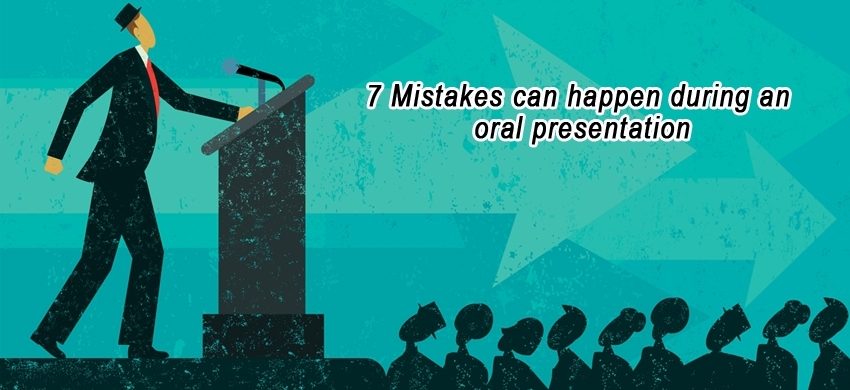7 Mistakes can happen during an oral presentation

We normally speak to a number of people through the day. We speak thousands of sentences daily. But when it comes to making a speech before an audience, one has to be circumspect in every sense. In fact, a lot of unwanted mistakes can happen during making an oral presentation. Some of them are these:
- Grammatical errors: When you are in a flow to reach some point in your presentation, you can make grammatical mistakes while speaking. They may be inadvertent, but give away a bad impression to the audience.
- Dull presentation: If your speaking-skills are not stimulating enough to inspire the audience to take a decision, then your presentation is more or less bracketed as dull and dreary.
- Incoherent and long presentation: If you start rambling word after word continuously, be sure you will lose the main plot. The crux of your business will be lost and the audience will find nothing for them in your presentation. Short presentations with main points always attract and engage the audience.
- Lacking motivation for audience: The audience must get a message right through your presentation that there is something in it for them which is very significant. Your speech must convey to the audience that your products or services are going to solve their problem or meet their demands big-time.
- An imprudent use of PowerPoint: Excessive uses of PPTs or excessive number of slides in a PPT always detract the audience from the core of the presentation. Interaction is very critical when you make a speech before an audience, so the use of PPTs has to be very prudent so that they don’t affect the interaction-quotient of a presentation.
- A deluge of facts and details: The extent of details about your business in a presentation must be limited in a way that excites them to know more about it. The basic information has to be presented and you must be making them understand it simply. If they see their need, they will automatically join hands with you.
- Staying away from interaction: If you don’t let your audience ask you questions, you do it on your peril. If they don’t interact and ask questions, then that means they are not involved in your presentation. Speak less and give them ample opportunity to present their queries! Queries signify their engagement and there is every chance you would get them on board.
Have these shortcomings in your mind, they may be unintentional, but if you prepare your presentation accordingly, you will have achieved your goals more often than not.

 +91-9540344454 / 9999344454
+91-9540344454 / 9999344454 